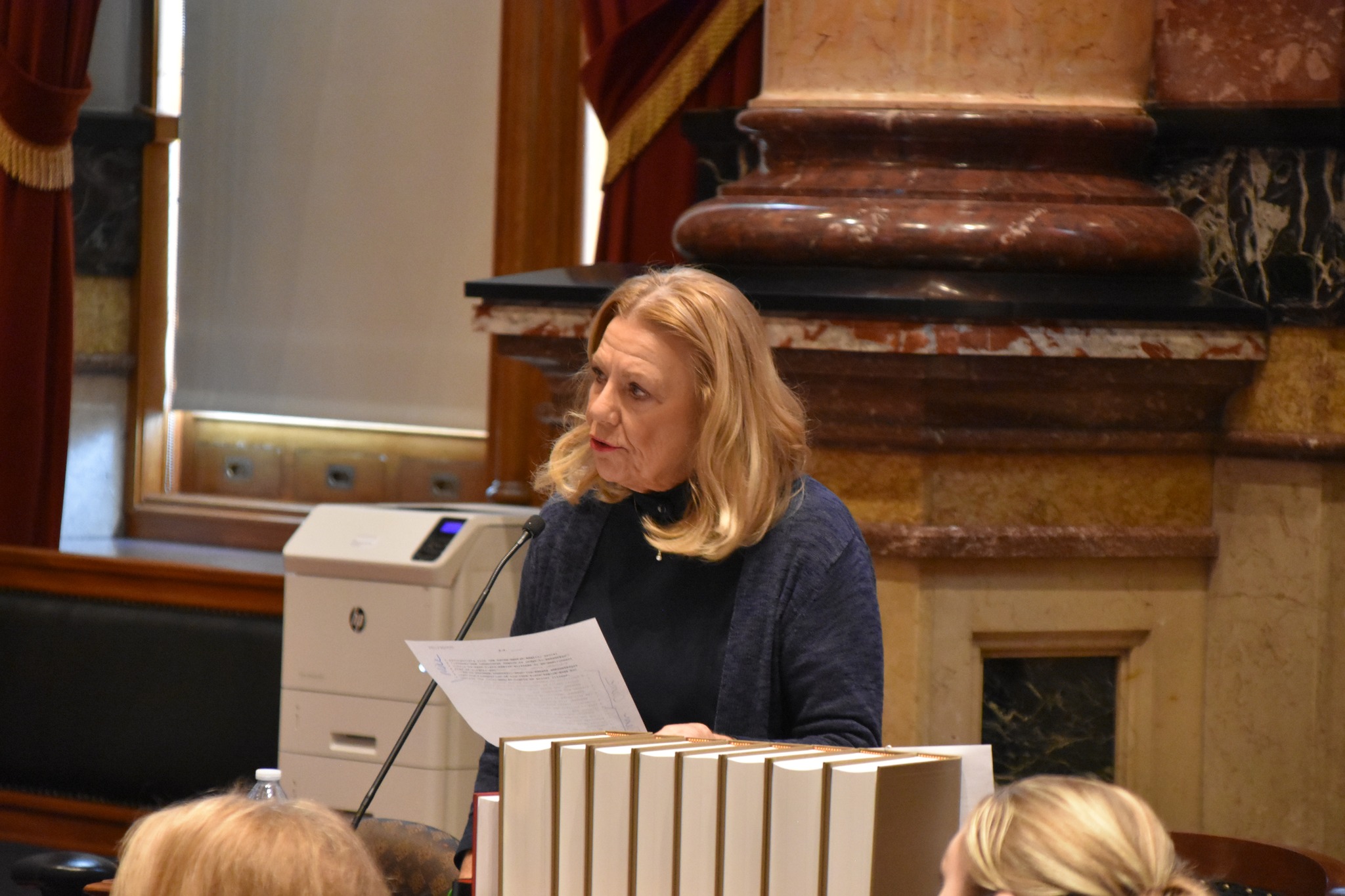Catching up on some legislative campaign news: Iowa Senate Minority Leader Pam Jochum announced on January 12 that she won’t seek re-election this November. Jochum is the longest-serving current Iowa Democratic legislator, with sixteen years of experience in the state House followed by sixteen in Senate. Her colleagues chose her to lead the sixteen-member caucus last June. The last four years Democrats held a majority in the chamber, Jochum served as Senate president (the second-ranking position).
While the open seat in Iowa Senate district 36 leans Democratic, the Dubuque area is no longer as blue as it has been for much of the last century. Depending on who wins each party’s nomination, this could be a race to watch in November.
A DEMOCRATIC-LEANING DISTRICT ON THE MISSISSIPPI
Iowa Senate district 36 covers the city of Dubuque and a few precincts outside the city.

The Dubuque area has been a Democratic stronghold since the late 1800s, but like many of Iowa’s Mississippi River communities, has trended away from Democratic candidates over the past decade.
That said, the city of Dubuque still votes more blue than the county as a whole, which went for Donald Trump in 2016 and 2020, and gave a majority of votes to Republican U.S. Representative Ashley Hinson’s re-election campaign in 2022.
The latest official figures from the Iowa Secretary of State’s office (which would not include anyone who changed their party affiliation at the January 15 caucuses) indicate that Senate district 36 has 12,507 active registered Democrats, 8,667 Republicans, and 7,746 no-party voters. The statistics for all registrants—including presidential year voters who aren’t on the “active” rolls because they didn’t participate in the 2022 midterms—show 17,620 Democrats, 11,484 Republicans, and 14,476 no-party voters.
According to a map Josh Hughes created in Dave’s Redistricting App, the precincts that now make up Senate district 36 favored Joe Biden over Trump in the 2020 presidential election by 53.4 percent to 44.4 percent. The split on that year’s U.S. Senate race was similar: 53.4 percent of the vote for Democrat Theresa Greenfield, and 43.2 percent for GOP incumbent Joni Ernst.
So all other things being equal, Democrats are favored to hold the district. But without an incumbent on the ballot, an upset becomes more realistic.
ONLY ONE DECLARED CANDIDATE SO FAR
The same morning Jochum confirmed that she won’t seek another term, Tom Townsend launched his Senate district 36 campaign. Townsend is a Navy veteran and president of the Dubuque Federation of Labor, AFL-CIO. He has also been a member of the International Brotherhood of Electrical Workers. His news release noted that this is his first time running for public office, though he has been an elected union leader for more than twelve years.
Townsend said he’s running because “There needs to be more working-class folks in the state legislature,” and promised to “continue advocating for labor and all working Iowans” as a member of the Iowa Senate. Jochum and several labor groups have already endorsed him, and his news release claimed the campaign had already raised more than $50,000 as of January 12. (Candidates for state offices in Iowa will file their next campaign finance disclosures in mid-May.)
I’m not aware of any other declared Democratic candidates. A competitive primary can’t be ruled out, because it’s easy to qualify for the ballot as a state legislative candidate, and the filing deadline is March 15. But the two most obvious Democratic contenders have ruled out this race. State Representative Chuck Isenhart told Bleeding Heartland he plans to seek re-election in House district 72, covering part of Dubuque and some precincts to the north.
State Representative Lindsay James also plans to seek re-election in House district 71, covering the rest of Dubuque. James has served as the House minority whip (the second-ranking position in the caucus) since 2022 and has been part of the Iowa legislature’s first all-woman leadership team since 2023.
James told Bleeding Heartland she’s “very excited to continue leading in the Iowa House Democratic caucus” and doesn’t feel her “time in the House is done.” She added, “It is heartbreaking to learn about Senator Jochum’s retirement. She has been a mentor and a friend, and I hope to continue her legacy of leadership in the House chamber.”
To my knowledge, no Republicans have announced plans to run for Senate district 36. Jennifer Smith did not respond to inquiries. She ran against Jochum in 2020 and lost by 18,044 votes to 12,677 (58.7 percent to 41.3 percent). Smith challenged Isenhart in 2022 and lost a much closer race: 6,164 votes to 6,070 (50.3 percent to 49.6 percent).
Some Iowa legislative candidates have won open seats after unsuccessfully running against an incumbent, including Iowa House Minority Leader Jennifer Konfrst, Democratic State Senator Molly Donahue (when first elected to the Iowa House), and Republican State Representative Jon Dunwell.
On the other hand, Smith may prefer to try her luck again in House district 72, which has less of a Democratic lean than the seat Jochum is vacating. According to a map Josh Hughes created in Dave’s Redistricting App, the precincts now part of that House district favored Biden over Trump by 50.7 percent to 47.0 percent in 2020, and Greenfield over Ernst by 51.3 percent to 45.4 percent.
Bleeding Heartland will publish comprehensive reviews of the Iowa Senate and House landscapes after the March filing deadline for major-party candidates.
Top image: State Senator Pam Jochum presents a resolution on brain health during Iowa Senate debate on January 17. Photo first published on her Facebook page.

